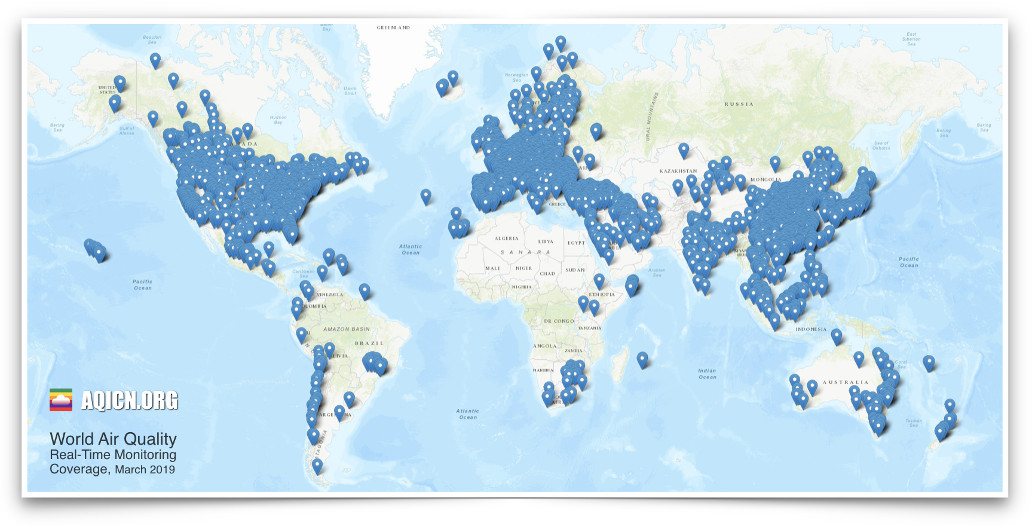
Le projet World Air Quality Index est un projet à but non lucratif lancé en 2007. Sa mission est de sensibiliser les citoyens à la pollution de l'air et de fournir des informations unifiées et mondiales sur la qualité de l'air.
Le projet fournit des informations transparentes sur la qualité de l'air pour plus de 130 pays, couvrant plus de 250 000 stations de surveillance de la qualité de l'air dans 2 000 grandes villes, via ces deux sites Web : aqicn.org et waqi.info .
L'équipe fondatrice est composée de plusieurs contributeurs dans le domaine des sciences de l'environnement, de l'ingénierie des systèmes, de la science des données ainsi que du design visuel. L'équipe s'est développée dans le monde entier, avec de nouveaux supporters clés venus de Chine, de Singapour, d'Inde, d'Australie et des États-Unis.
Le projet a une intention sociale. Pourtant, malgré son vaste rayonnement, il n’a jamais reçu de financement public. Nos revenus, issus essentiellement de la publicité en ligne ainsi que de nos stations de surveillance de la qualité de l'air GAIA , servent à couvrir l'infrastructure cloud et les frais d'hébergement.
Le projet est constamment à la recherche du soutien de davantage de contributeurs.
Il a désormais reçu des contributions actives de plus de 16179 citoyens de 138 pays.


